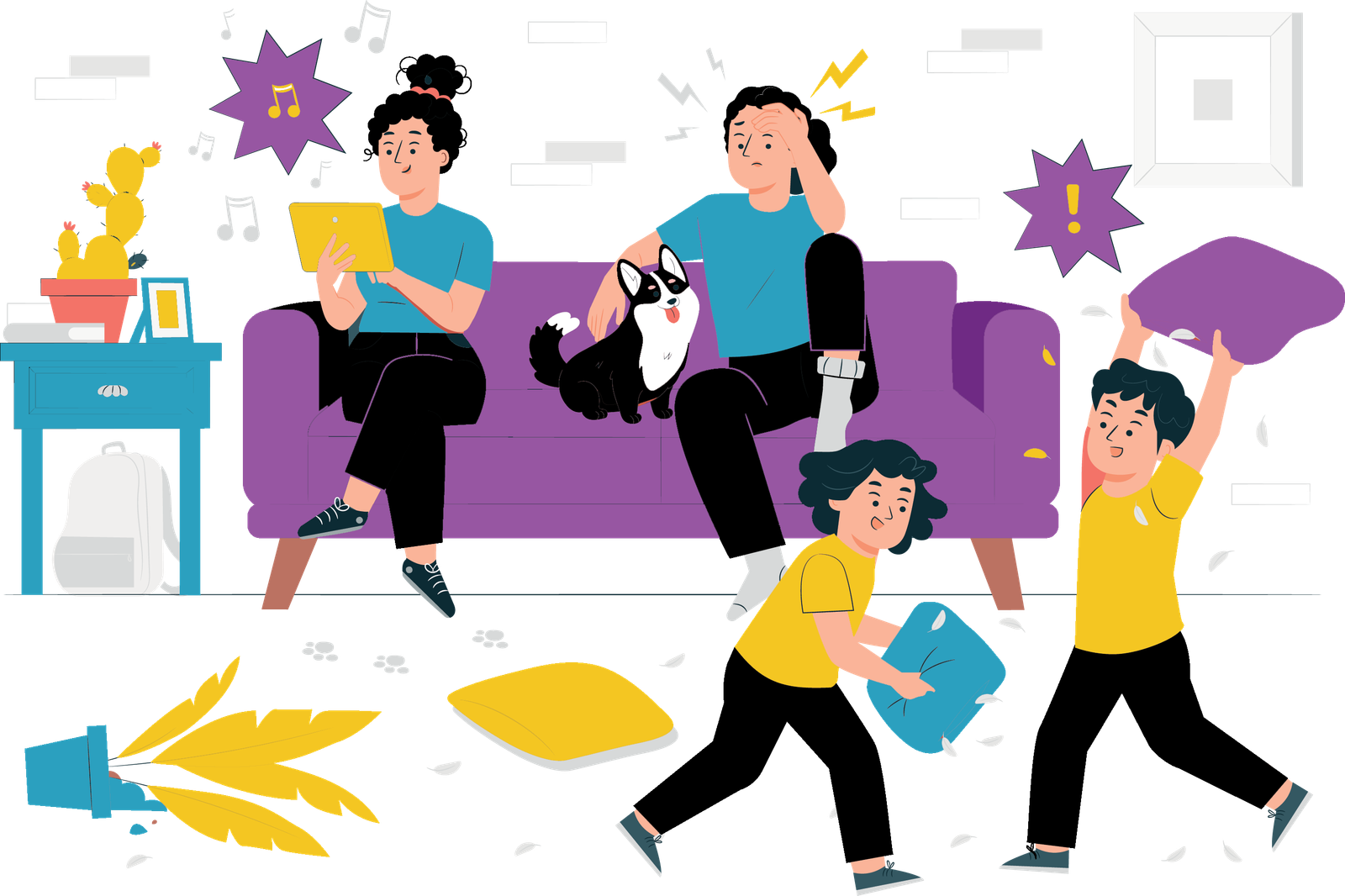+91 78889-76762
Anger issues in Children
A healthier choice for a healthier you.
Anger issues in Children
Anger issues in Children

Why Anger issues in Children therapy important?
Early Intervention for Behavioral Management
Addressing anger issues early can prevent more severe behavioral problems from developing later. Therapy provides children with tools to manage their emotions constructively.
Supporting Emotional Regulation
Therapy helps children learn to recognize and manage their emotions effectively. It teaches coping strategies to handle frustration, disappointment, and other triggers that lead to anger.
Family Dynamics and Support
Therapy often involves working with parents to help them understand their child's behavior and learn effective ways to support them. This can improve family dynamics and reduce overall stress.
Why people need paid Anger issues in Children thearpy?
Why people need paid Anger issues in Children thearpy?
Consistent and Structured Support
Paid therapy typically offers consistent and scheduled sessions, which are essential for ongoing support and progress monitoring. Regular sessions ensure that therapy is structured and effective over time.
Personalized Treatment Plans
Paid therapy allows for the development of individualized treatment plans based on comprehensive assessments of the child’s specific issues. This personalization helps in addressing the root causes of anger and implementing strategies that work best for the child.
Comprehensive Resources and Tools
Paid therapy services often have access to specialized resources, tools, and technologies that enhance the therapeutic process. These may include assessment tools, educational materials, and therapeutic aids.
Parental Involvement and Training
Many paid therapy programs include training and support for parents, helping them understand their child’s behavior and learn effective ways to support their child’s progress at home.
Long-Term Benefits
Effective anger management therapy provides children with skills and strategies that benefit them long-term, including improved emotional regulation, conflict resolution, and stress management.
why we need it Anger issues in Children thearpy?
why we need it Anger issues in Children thearpy?
Effective Emotion Regulation
Therapy helps children learn how to recognize and manage their emotions in a healthy way. It equips them with strategies to handle anger and frustration without resorting to outbursts or aggressive behavior.
Enhancing Behavioral Outcomes
Therapy addresses the root causes of anger and helps children develop alternative ways to express their feelings, reducing the likelihood of aggressive or harmful behavior.
Fostering Positive Self-Esteem
As children learn to manage their anger and achieve more positive outcomes, their self-esteem and confidence often improve. They feel more in control and capable of handling challenging situations.
Supporting Family Dynamics
Therapy can help improve family dynamics by providing parents with tools to better understand and manage their child’s anger. It also fosters better communication and conflict resolution within the family.
Building Positive Behavioral Habits
Children gain insight into their emotional triggers and learn how to manage them proactively, leading to more adaptive behavior patterns.
How to Choose the Best Therapist for Your Needs
Identify Your Needs
Type of Therapy: Determine the type of therapy that aligns with your needs (e.g., Cognitive Behavioral Therapy, Dialectical Behavior Therapy).
Approach and Techniques
Therapeutic Approaches: Consider the therapeutic methods they use (e.g., Cognitive Behavioral Therapy, Play Therapy). Choose an approach that aligns with your child’s needs and your preferences.
Assess Communication
Initial Contact: Pay attention to how the therapist communicates during your initial contact. They should be responsive, professional, and clear.
Read Reviews and Testimonials
Check online reviews and testimonials from other clients. This can give you insights into the therapist’s approach, effectiveness, and how comfortable others have felt during their sessions. Positive feedback and recommendations can be a good indicator of a therapist’s competence.

5.0Top Rated Serviceverified by TrustindexTrustindex verifies that the company has a review score above 4.5, based on reviews collected on Google over the past 12 months, qualifying it to receive the Top Rated Certificate.
The professional, licensed, and vetted Psychologist who you can trust.
FAQs About Child Therapy
- Frequent outbursts of anger or aggression
- Difficulty calming down after an outburst
- Persistent mood swings
- Problems with peer relationships or authority figures
- Behavioral issues at home or school
- Difficulty managing frustration or stress
- Therapy helps children identify the triggers for their anger.
- Provides them with tools and techniques to manage their emotions.
- Teaches coping strategies and relaxation techniques.
- Improves communication skills to express feelings constructively.
Common types of therapy for anger management include Cognitive Behavioral Therapy (CBT), Dialectical Behavior Therapy (DBT), and mindfulness-based approaches. The choice of therapy depends on individual needs and the therapist’s recommendations.
The duration of therapy varies depending on the severity of the anger issues and individual progress. Some people may see improvements in a few sessions, while others may need longer-term therapy for more sustained results.
During a therapy session, you can expect to discuss your anger issues, explore their causes, and work on developing strategies to manage your emotions. Sessions may include activities, discussions, and homework assignments to practice skills.
Yes, many therapists offer online or teletherapy options. This can be a convenient and effective way to receive therapy, especially if you have difficulty accessing in-person sessions.
